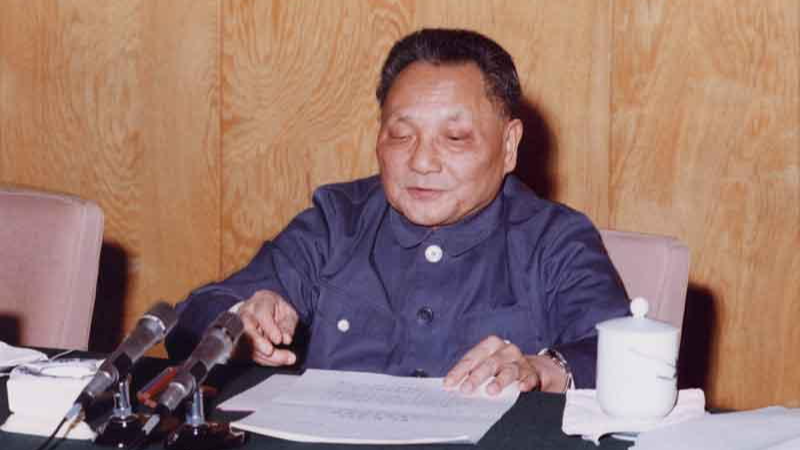File photo of Deng Xiaoping. /People's Daily
August 22 this year marks the 120th anniversary of Deng Xiaoping's birth. Commemorative events are being held across the country, including the issuance of commemorative stamps and the holding of seminars on Deng Xiaoping's theory, to honour the contribution of a leader who played a key role in China's reforms and opening up to the outside world.
Deng was born in 1904 and began China's remarkable journey towards modernisation. Today, as China continues its modernisation process, Deng's theory of reform and opening up to the outside world continues to serve as a crucial guiding force.
Over the past 40-plus years of reform and opening up to the outside world, China's GDP has grown from 367.9 billion yuan (about $51.6 billion) in 1978 to a staggering 126.06 trillion yuan in 2023 (about $17.7 trillion). From 1978 to 2018, China's GDP recorded an average nominal growth of 14.5 % per year. In 2010, China's GDP surpassed that of Japan to become the world's second largest economy.
According to World Bank data, global economic growth has averaged about 2.91 % per year since 1979, with China's rapid expansion playing a significant role in supporting global growth. Along with this economic growth, China's urbanization rate has risen from 18 % in 1978 to 63 % in 2022.
One of the most profound impacts of this economic growth has been a dramatic reduction in poverty. According to the World Bank's international poverty line of US$1.90 per capita per day, China has lifted nearly 800 million people out of poverty since reforms and the opening of the country to the outside world in 1978, representing more than 70 % of global poverty reduction over the same period.
(Sve)
CMG / gnews.cz-en



